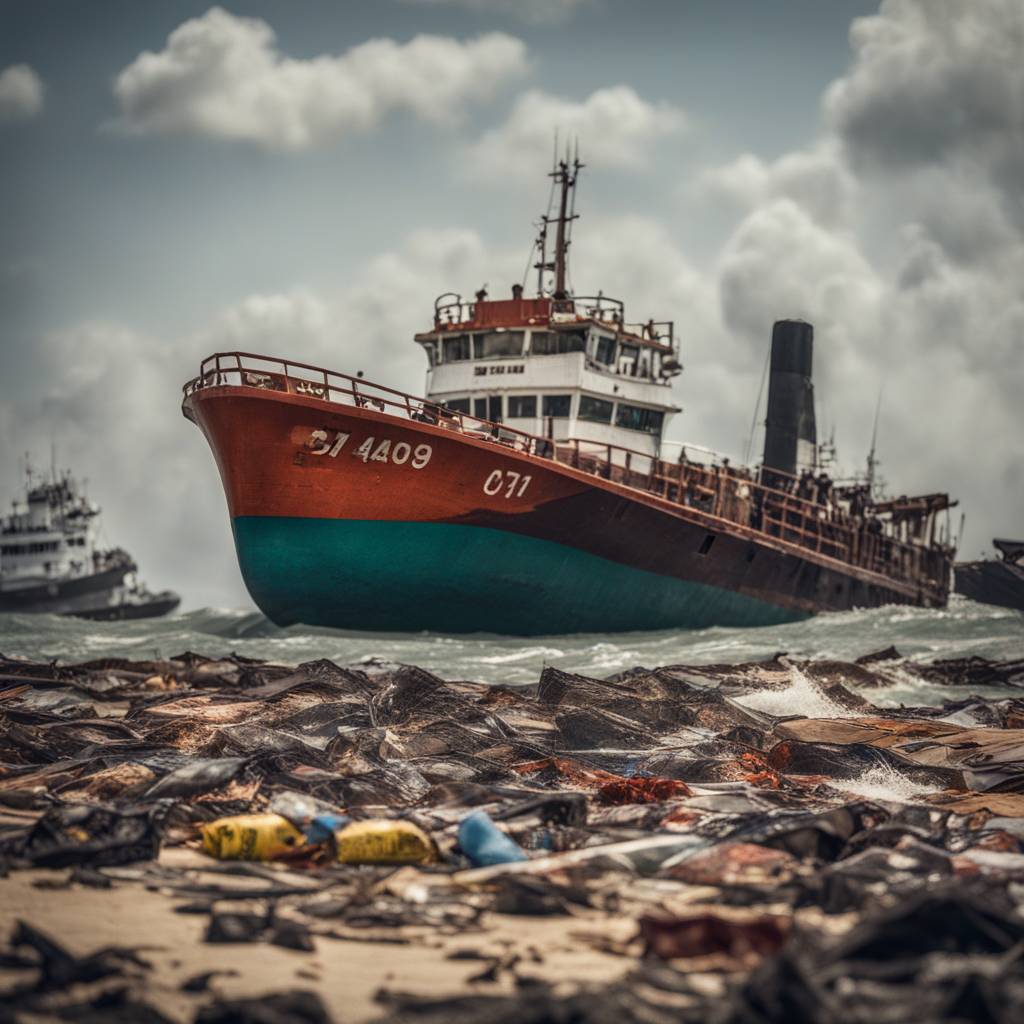A makeshift ferry carrying an estimated 130 passengers sank off Mozambique’s northern coast, causing the deaths of at least 98 people, including children. The ferry was en route to the Island of Mozambique when it capsized, leading to the hospitalization of 11 survivors. Search and rescue efforts continued as authorities attempted to determine the exact number of missing individuals. The incident was attributed to the overcrowding of the vessel and the use of an unsuitable boat for passenger transportation.
Officials from the Nampula provincial authority stated that the ferry was not designed for ferrying passengers and was overcrowded, leading to the tragic sinking. Reports indicated that residents of the town of Lunga were attempting to flee what they believed to be a cholera outbreak, which the country had been grappling with in recent months. The boat, which was typically used for fishing, was not suited for sailing, resulting in the unfortunate incident. Despite some individuals managing to reach the island, they succumbed to their injuries due to a lack of timely medical assistance.
The cholera outbreak in Mozambique had claimed the lives of 32 individuals out of around 15,000 reported cases since late the previous year. The Nampula province bore the brunt of the outbreak, with over 5,000 cases, including 12 fatalities. Access to many regions in Mozambique is only possible by boat, leading to overcrowding and safety concerns. Due to a poorly developed road network, some areas are unreachable by land or air, necessitating the use of boats for transportation, often under risky conditions.
Maritime authorities and government officials were on the scene to assist with search and rescue operations, as well as to gather more information on the incident. The use of unsuitable vessels for passenger transport and overcrowding remained key factors in the tragedy. The media reported on the desperate circumstances that led residents to flee in a hasty manner, resulting in the capsize of the boat. Authorities faced the grim task of collecting and identifying the deceased, including two children whose bodies remained unclaimed in a morgue.
The aftermath of the ferry sinking underscored the challenges faced by Mozambique, a country grappling with a deadly cholera outbreak amidst poor infrastructure and limited access to healthcare. The incident highlighted the fragility of transportation systems in the region, where boats are a primary mode of travel in hard-to-reach areas. The government’s response to the disaster was crucial in managing the impact and preventing similar occurrences in the future. The tragic event served as a wake-up call to address the underlying issues contributing to such accidents and to prioritize safety and regulation in maritime transportation.
Efforts to contain the cholera outbreak and prevent further loss of life were ongoing, with authorities working to provide necessary medical assistance and support to affected communities. The sinking of the ferry brought attention to the vulnerability of Mozambique’s population, particularly in remote areas that rely heavily on boats for transportation. The need for improved infrastructure, emergency response mechanisms, and public health initiatives was underscored by the tragic incident, prompting a reevaluation of resources and strategies to prevent similar disasters in the future.


